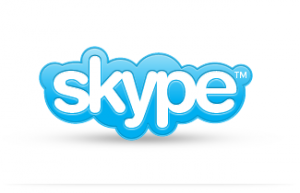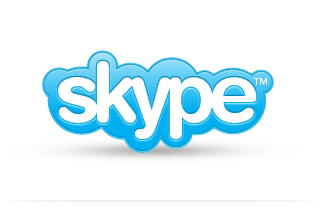Your Teacher is Online: Skype and the Future of Music Lessons
 It was an ordinary spring afternoon in my freshman year at the New England Conservatory, and like many of my colleagues, I was on my way to a lesson. All the necessary music was stuffed into my backpack, the tape in my tape recorder was rewound and ready for recording (yes, I actually used a tape recorder in those days), and I was sufficiently warmed up from the previous hour’s practice session. Arriving outside the assigned lesson room a few minutes early, I waited patiently in the hall, mentally reviewing the repertoire I was about to play. But when the previous student emerged from the room, and I took his place inside, the experience became anything but ordinary. Instead of being greeted by my professor, I found myself ogling at an enormous projection of her face on a screen, patched in via a Skype connection.
It was an ordinary spring afternoon in my freshman year at the New England Conservatory, and like many of my colleagues, I was on my way to a lesson. All the necessary music was stuffed into my backpack, the tape in my tape recorder was rewound and ready for recording (yes, I actually used a tape recorder in those days), and I was sufficiently warmed up from the previous hour’s practice session. Arriving outside the assigned lesson room a few minutes early, I waited patiently in the hall, mentally reviewing the repertoire I was about to play. But when the previous student emerged from the room, and I took his place inside, the experience became anything but ordinary. Instead of being greeted by my professor, I found myself ogling at an enormous projection of her face on a screen, patched in via a Skype connection.
“Hi, Zach!” she exclaimed, her voice echoing loudly around the room.
“H-Hello,” I stuttered, suddenly disoriented.
This was not, of course, a very typical occurrence; in fact, it was the first lesson I’d ever taken over Skype, and considering that the year was 2009, such a situation was relatively new. My teacher had been on a prolonged tour in Canada, and as juries were fast approaching, she arranged for a tech-savvy member of the studio to set up the connection on this particular afternoon. Ultimately, it wasn’t very different than a regular lesson, with the exception that I felt as though I was in that scene from “The Wizard of Oz” where Dorothy and her friends encounter what they believe is the “wizard” but what is really just some clever technological trickery operated by the infamous “man behind the curtain.”
Four years later, however, with technological advancements achieving what was previously confined to the content of sci-fi fantasies, online lessons are becoming more common than ever before. Skype and similar video chat technologies are now so widely accessible that students and teachers can connect from almost anywhere, thus posing profound implications for the future of music education. Sure, most teachers today only use such technological luxuries when circumstances prevent an in-person meeting, but how long will it be before parents begin considering Skype lessons as a viable alternative to spending an hour on the expressway each week chauffeuring little Jimmy back and forth to his viola lesson? How long will it be before students already completing so much of their academic education online find it perfectly appropriate to obtain their musical education in the same way? The notion that the music lessons of the future will be taught entirely over the internet might seem far-fetched, but then how would you have responded twenty years ago if someone asserted that the future would contain this “website” called “Facebook” where you could receive live updates from everyone you know, at any place in the world?
This is not to say, of course, that technological advancements are negatively impacting civilization; on the contrary, they have proved to be significant enhancements to our daily lives–if we do not eschew necessity for convenience. For example, using Facebook to stay in touch with your far-flung, but loyal, group of high school buddies is a great thing to do. But if it’s your sole means of interacting with your next-door neighbor, there’s definitely something wrong. The same holds true for Skype lessons (or any lessons that take place via an online video medium). Taking advantage of the technology in certain circumstances can certainly be a great benefit to both teachers and students: a teacher’s prolonged concert tour needn’t deprive a student of some much-needed lessons in preparation for their upcoming audition, nor does a student’s contagious, yet manageable illness need to deprive a teacher of some much-needed income. But the idea of using Skype exclusively is, in my opinion, artistically dangerous. The whole reason we perform music is to communicate–and how can one possibly impart the subtleties of such a communicative art while, quite literally, communicating indirectly?
Yes, a computer might flawlessly replicate the images of our faces and the nuances of our voices, but no technology is capable of engendering that instinctual connection formed between individuals sharing a common physical space, a connection that constitutes the foundation of any student-teacher relationship. Indeed, some of the most valuable moments in my own studies have been when a teacher helped me to learn a motion through some means of physical contact (I recall one masterclass where the professor actually grabbed my bow arm and forced it to move in the proper way), or on occasion, played with me themselves. Even in lessons without these types of activities, however, my relationships with various teachers were always strengthened through other, smaller interactions–interactions that are impossible to experience within a virtual realm. You can’t offer someone a leftover cookie from last night’s reception over Skype, nor can you mark a fingering in their part or hold the door open for them when they leave. We humans are very social creatures, whether we recognize it or not, and without these subtle, yet utterly significant physical signals, we cannot foster that positive, trusting, and lasting relationship with a teacher or a student if our interactions with them are solely confined to a shaky internet connection. It is for this reason above all that we must exercise great caution in agreeing to arrangements largely dependent on online communication. We don’t only owe it to ourselves, our teachers and our students–we owe it to the music that we will ultimately create together.
Now, is this an alarmist position? Is it really feasible that there will someday be a universal condonation of exclusively online lessons? Considering the integrity and wisdom of today’s emerging musicians, I believe there’s a good chance that it will not happen. But, when I think of the inexorable march of modern technology, of flickering Facebook screens and endless Twitter feeds, I cannot deny the possibility that it could–and that, in my opinion, makes it an issue worthy of serious consideration.

